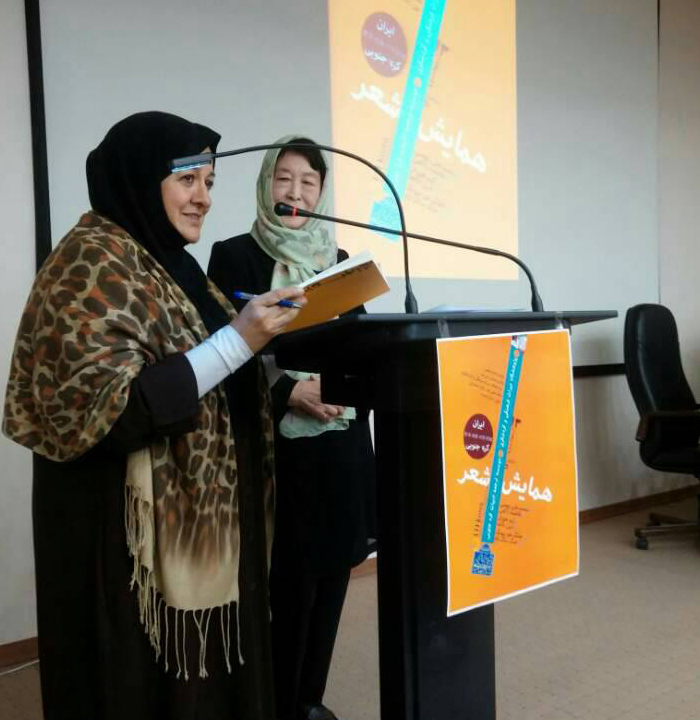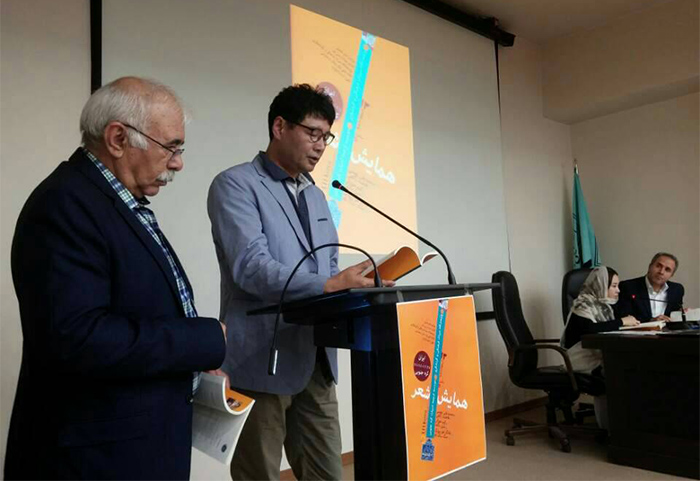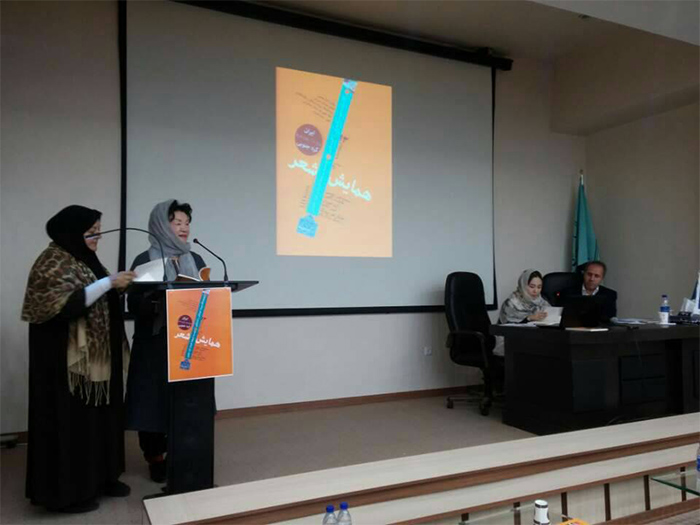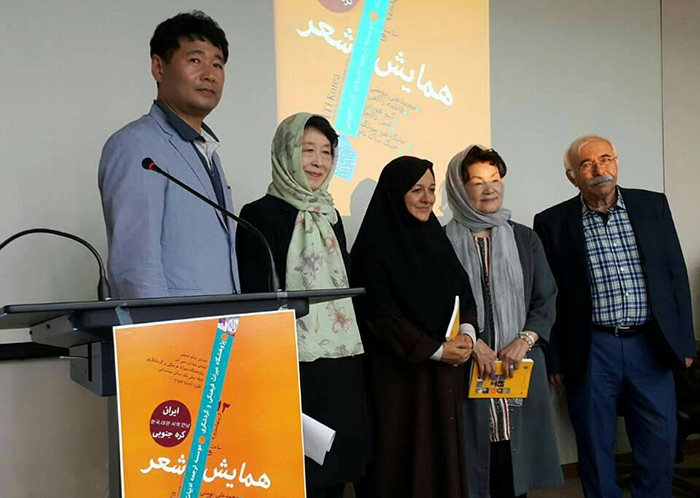As Korean and Iranian poets have come to see cultural similarities between themselves, they have decided to promote cultural exchanges between the two countries.
As both Korean and Iranian poets have found cultural similarities between the two countries, Korean poets Kim Hu-ran, Shin Dal-ja and Jang Seok-nam, together with Iranian poets Fatemeh Rakei and Mohammad Ali Bahmani, decided to find similarities in the poetry of the two countries and to further revitalize cultural exchanges, at the Korea-Iran Poetry Meeting held at the research institute of Iran’s Cultural Heritage, Handcrafts and Tourism Organization on May 2.
The poets read five poems each in their own language, and then read each other's translated versions and exchanged their thoughts and opinions. The reading was followed by a question and answer session where their thoughts about cultural homogeneity and differences were exchanged. Poet Kim Hu-ran received a question on whether, in Korea, poetry is expressed with rhythm while reading. She replied that, "Reading poetry can be found in classical Korean poetry. Modern poetry, although different than the traditional version, has the element of expressing it with rhythm," and she reconfirmed the similarities between the two countries. Shin Dal-ja said, "In Rakei's poem, I felt the strong will and spirit of women in overcoming their limits." Jang Seok-nam said, "Although I'm reading a translated version of an Iranian poem, I feel deeply touched as the essence and similarities of the poem transcend language."
 Iran's most representative female poet, as well as the president of the poet association, Fatemeh Rakei, said, "It's very impressive that in many poems written by Korean female poets, they talk about a mother's instinctive love. I felt that Korea has a strong maternal affection, and they also value it quite highly."
She further said that, "I'm sorry that plans in 2014 to develop a yearly poetry convention attended by poets from both countries weren't carried out. This year, as the poets of both countries have now gathered together, I hope regular meetings will be held between the writers."
Iran's most representative female poet, as well as the president of the poet association, Fatemeh Rakei, said, "It's very impressive that in many poems written by Korean female poets, they talk about a mother's instinctive love. I felt that Korea has a strong maternal affection, and they also value it quite highly."
She further said that, "I'm sorry that plans in 2014 to develop a yearly poetry convention attended by poets from both countries weren't carried out. This year, as the poets of both countries have now gathered together, I hope regular meetings will be held between the writers."
Also during the event, the Korean version of the "100 Years, 1,000 Flowers" poetry collection, which was written by 71 Iranian poets and was published in Korea last year, was given out to two Iranian poets who's poems are inside the collection.
The Korean poets will hold a discussion session with the Iranian poet Howzeh Honari, from the Islamic Art and Thoughts department of the Islamic Propagation Organization, on May 3 and will attend a Korean literature festival aimed at Tehran University students on May 4.
By Son Gi-na
Korea.net Staff Writer
Photos: Literature Translation Institute of Korea
ginason@korea.kr



As both Korean and Iranian poets have found cultural similarities between the two countries, Korean poets Kim Hu-ran, Shin Dal-ja and Jang Seok-nam, together with Iranian poets Fatemeh Rakei and Mohammad Ali Bahmani, decided to find similarities in the poetry of the two countries and to further revitalize cultural exchanges, at the Korea-Iran Poetry Meeting held at the research institute of Iran’s Cultural Heritage, Handcrafts and Tourism Organization on May 2.
The poets read five poems each in their own language, and then read each other's translated versions and exchanged their thoughts and opinions. The reading was followed by a question and answer session where their thoughts about cultural homogeneity and differences were exchanged. Poet Kim Hu-ran received a question on whether, in Korea, poetry is expressed with rhythm while reading. She replied that, "Reading poetry can be found in classical Korean poetry. Modern poetry, although different than the traditional version, has the element of expressing it with rhythm," and she reconfirmed the similarities between the two countries. Shin Dal-ja said, "In Rakei's poem, I felt the strong will and spirit of women in overcoming their limits." Jang Seok-nam said, "Although I'm reading a translated version of an Iranian poem, I feel deeply touched as the essence and similarities of the poem transcend language."

Iranian poet Fatemeh Rakei (left) and Korean poet Kim Hu-ran read each other's poems during the Korea-Iran Poetry Meeting.
Also during the event, the Korean version of the "100 Years, 1,000 Flowers" poetry collection, which was written by 71 Iranian poets and was published in Korea last year, was given out to two Iranian poets who's poems are inside the collection.
The Korean poets will hold a discussion session with the Iranian poet Howzeh Honari, from the Islamic Art and Thoughts department of the Islamic Propagation Organization, on May 3 and will attend a Korean literature festival aimed at Tehran University students on May 4.
By Son Gi-na
Korea.net Staff Writer
Photos: Literature Translation Institute of Korea
ginason@korea.kr


Poets from the two countries read each other's poems during the Korea-Iran Poetry Meeting on May 2.

Poets from the two countries attend the Korea-Iran Poetry Meeting at the research institute of Iran’s Cultural Heritage, Handcrafts and Tourism Organization on May 2. (From left) Jang Seok-nam, Kim Hu-ran, Fatemeh Rakei, Shin Dal-ja, and Mohammad Ali Bahmani all attended the event.